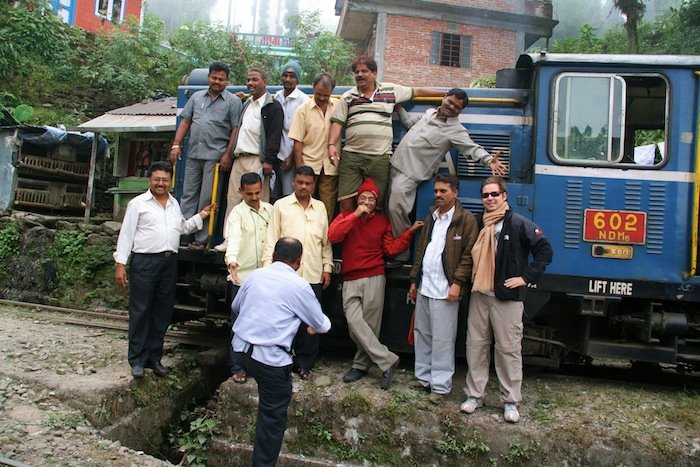What is social anthropology?
It's not uncommon for me to get questions about what social anthropology is. Not only from the general public, but also from individuals who have been in academia for a long time. In this post, I will attempt to explain it.
Captions: A meeting with local tourists on “toy train” to Darjeeling.
So what does a social anthropologist study?
Social anthropology is a field within the social sciences where we delve into the complex and varied diversity of human culture, society, and behavior. Central to social anthropology is understanding how people organize themselves, what drives their actions, and how they create meaning in different social contexts around the world. The ideal is to understand "the native's point of view."
People's everyday lives
On the surface, it might seem like a distant and abstract concept, but social anthropology is actually closely connected to everyday life. From studying the rituals of an isolated tribe in the rainforest to analyzing consumption patterns in modern cities, social anthropology spans a wide range of topics and areas. I myself have worked on both magic in Thai Buddhism and patient pathways in cancer care in Norway
Learning about culture through fieldwork
One of the most fascinating aspects of social anthropology is its ability to provide insight into human variation and universal patterns. Through fieldwork, observation, and analysis, social anthropologists uncover cultural norms, values, and practices that help shape societies around the world. Human life is often both unique and similar at the same time. The social anthropologist typically uses the method of "participant observation." As the term suggests, one is both a participant in everyday life and in the role of an observer who collects data. The social anthropologist often keeps a field diary to record their observations. Other social science methods, such as interviews and focus groups, are also used.
A critical view of society and criticism of power
Furthermore, social anthropology goes beyond just describing and explaining cultural phenomena. It also seeks to challenge stereotypes, understand power structures, and address social injustices. By exploring inequalities in access to resources, rights, and opportunities, social anthropology helps illuminate and address social challenges across societies and cultures.
In short, social anthropology is...
...a field that explores human diversity, social dynamics, processes, and cultural phenomena. Through its thorough analysis and deep understanding of human behavior and practices, social anthropology contributes to highlighting both differences and commonalities in human life. The social anthropologist "pokes" at accepted truths. They describe life and explain what lies behind it. The study is very often bottom-up, meaning it focuses on the real lives of "ordinary people" and how they organize their lives.
Social anthropology creates important knowledge
As mentioned, through its fieldwork over a long period of time, anthropology seeks to get close to real life from people's own perspectives. I think this is extremely important, and we need much more of this in relation to, for example, challenges related to user involvement, democratic principles, and inequality in power relations that we see today. Anthropology is excellent for bringing forward the voices of ordinary people and how power structures make their lives challenging. Why do people do what they do in different contexts? That’s a fundamental question.
Still not quite sure what social anthropology is about? Feel free to take a look at the engaging lecture by Wade Davis:


